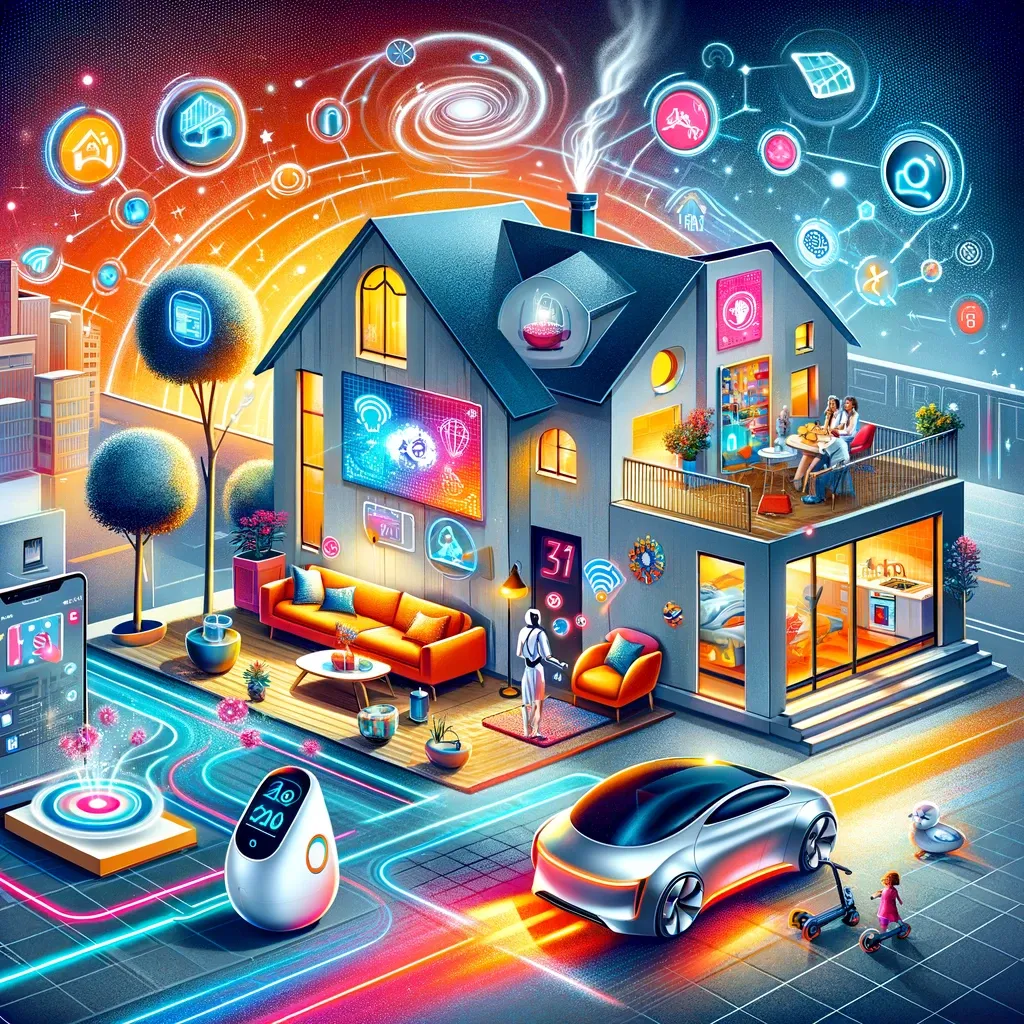
As we stand on the brink of a technological revolution, the integration of Artificial Intelligence (AI) into our everyday lives is not just a possibility; it’s an imminent reality. From smart homes to autonomous vehicles, AI is poised to reshape the way we live, work, and interact with the world around us. But the question remains: Are we ready for the future of AI in our everyday lives?
The Rise of AI: A Glimpse into the Future
Imagine waking up in a house where everything from your morning coffee to your daily news is curated by an intelligent system that knows your preferences. This is not a scene from a sci-fi movie but a glimpse into the future that AI promises. AI-powered devices can already adjust your thermostat, suggest routes to avoid traffic, and even monitor your health. These advancements are making our lives more convenient, efficient, and interconnected.
However, with great power comes great responsibility. As AI becomes more integrated into our daily routines, it’s crucial to consider the ethical implications and ensure that these technologies are developed and used responsibly. The benefits of AI are undeniable, but we must address the challenges it brings to fully embrace its potential.
The Personal Impact of AI
On a personal level, AI has the potential to enhance our lives in unprecedented ways. For instance, AI-driven health apps can monitor our vital signs, predict potential health issues, and provide personalized recommendations to maintain a healthy lifestyle. Imagine having a personal assistant who not only schedules your appointments but also understands your mood and adjusts your calendar accordingly to reduce stress.
In education, AI can tailor learning experiences to individual needs, making education more accessible and effective. Students can benefit from personalized tutoring systems that adapt to their learning pace and style, ensuring they grasp concepts fully before moving on. This personalized approach can bridge educational gaps and provide opportunities for lifelong learning.
Challenges and Ethical Considerations
Despite the promising future, the integration of AI into everyday life is not without challenges. Privacy concerns are at the forefront, as AI systems often require access to vast amounts of personal data to function effectively. Ensuring that this data is handled securely and ethically is paramount to gaining public trust.
Moreover, the rise of AI poses significant ethical questions. How do we prevent biases in AI algorithms that can perpetuate social inequalities? How do we ensure that AI is used for the greater good and not to exploit or harm individuals? These questions require collective efforts from policymakers, developers, and society as a whole to address.
Getting Involved: A Call to Action
We all have a role to play in shaping the future of AI. As consumers, we can make informed choices about the technologies we use and advocate for transparency and ethical practices in AI development. By staying informed and engaged, we can influence how AI evolves and ensure it aligns with our values and needs.
For businesses and developers, the responsibility is even greater. It’s essential to prioritize ethical AI development, focusing on creating technologies that are not only innovative but also fair and inclusive. Collaboration across industries and sectors can drive the creation of AI systems that enhance human capabilities while safeguarding our rights and freedoms.
Contact Information:
- Phone Number: 832-338-2926
Subscribe to Our Newsletter: Stay updated with the latest AI trends and insights by subscribing to our newsletter.
At Texas Integrated Services, we are more than just a technology company—we are your partners in innovation and growth. Let us help you navigate the future with confidence and success.
Copyright © 2024. All rights reserved.